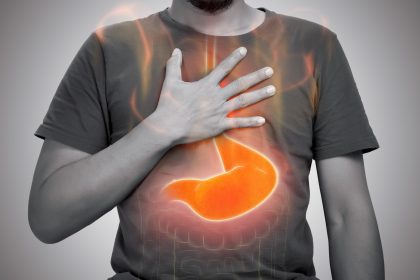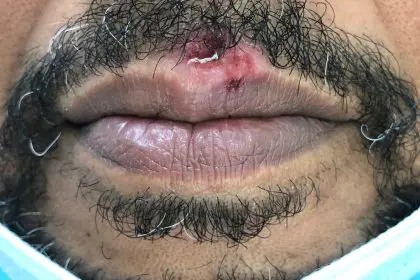Drug addiction is a chronic, often relapsing disorder that affects millions of people worldwide. Despite successful treatment, many individuals struggle to maintain sobriety and may relapse. Understanding the reasons behind relapse and how it happens is crucial in developing better support systems and treatment methods for those battling addiction.
Understanding relapse in drug addiction
What is relapse?
Relapse refers to the return to drug use after an attempt to stop. It is a common part of the recovery process but can be disheartening for those affected and their loved ones. Relapse does not signify failure but indicates that the treatment needs adjustment or that the person needs more or different support.
The cycle of addiction
Addiction is often described as a cycle of stages, including initial use, regular use, risky use, dependence, and addiction. Recovery involves breaking this cycle, but relapse can cause an individual to re-enter the cycle at various stages. Understanding this cycle is essential in recognizing that relapse is not a single event but a process that can be anticipated and managed.
Factors contributing to relapse
Psychological triggers
One of the most significant factors contributing to relapse is psychological triggers. These include stress, anxiety, depression, and other mental health issues. For many recovering addicts, these emotions can become overwhelming and lead to a desire to use drugs as a coping mechanism.
Stress and anxiety
Stressful life events, such as losing a job, relationship issues, or financial problems, can trigger a relapse. Stress and anxiety create a high-risk environment where the individual may turn to drugs to alleviate their discomfort.
Depression
Depression is another critical factor. Individuals who have struggled with drug addiction often have underlying issues of depression. When feelings of hopelessness and sadness become too much to bear, the individual may relapse in an attempt to escape these emotions.
Social and environmental triggers
The environment plays a crucial role in recovery and relapse. Being in places or around people who are associated with past drug use can create strong cravings and temptations.
Peer pressure
Friends or acquaintances who continue to use drugs can exert pressure, whether intentional or not, on the recovering individual. This social pressure can be powerful and lead to relapse, especially if the person feels isolated or unsupported in their recovery journey.
Environmental cues
Certain places, smells, or even sounds that are associated with previous drug use can trigger intense cravings. These environmental cues are deeply ingrained in the brain’s memory and can be challenging to overcome.
Biological factors
Biological factors, including genetics and brain chemistry, also contribute to relapse. Understanding these can help in developing more effective treatments.
Genetics
Some individuals have a genetic predisposition to addiction, making them more susceptible to relapse. This genetic factor can influence how their brain responds to drugs and stress.
Brain chemistry
Drug use alters brain chemistry, particularly the neurotransmitters that control pleasure and reward. Even after treatment, these changes can persist, leading to cravings and the potential for relapse when the brain seeks to return to its altered state.
Strategies to prevent relapse
Continuous therapy and support
Ongoing therapy and support are crucial in preventing relapse. This can include individual counseling, group therapy, and support groups such as Narcotics Anonymous.
Cognitive-behavioral therapy (CBT)
CBT helps individuals recognize and change negative thought patterns and behaviors that contribute to relapse. It equips them with coping strategies to handle stress and avoid triggers.
Support groups
Support groups provide a sense of community and accountability. Sharing experiences with others who understand the struggle can be incredibly supportive and motivating.
Lifestyle changes
Making positive lifestyle changes can significantly reduce the risk of relapse. This includes developing healthy routines, engaging in physical activity, and finding new hobbies.
Exercise
Regular physical activity can reduce stress and improve mood, which helps manage the psychological triggers of relapse. Exercise also provides a healthy outlet for energy and stress.
New hobbies and interests
Finding new hobbies and interests can help fill the void left by drug use. Engaging in fulfilling activities can provide a sense of purpose and satisfaction that reduces the temptation to relapse.
Medication-assisted treatment (MAT)
For some individuals, medication-assisted treatment can help maintain sobriety. Medications can reduce cravings and block the effects of drugs, making relapse less likely.
Methadone and buprenorphine
These medications help manage opioid addiction by reducing cravings and withdrawal symptoms. They can be a vital part of a comprehensive treatment plan.
Naltrexone
Naltrexone blocks the euphoric effects of opioids and alcohol, helping to prevent relapse. It can be used as part of a broader treatment strategy that includes counseling and support.
The importance of relapse prevention plans
Developing a detailed relapse prevention plan is essential for anyone in recovery. This plan should include strategies for managing stress, avoiding triggers, and seeking support when needed.
Identifying triggers
A critical step in relapse prevention is identifying personal triggers. Knowing what situations, emotions, or people are likely to cause cravings can help individuals avoid or prepare for these scenarios.
Creating a support network
Building a robust support network of friends, family, and professionals can provide essential help during difficult times. This network should be a source of encouragement and accountability.
Regular check-ins and adjustments
Recovery is an ongoing process that requires regular check-ins and adjustments to the treatment plan. Staying engaged with therapy and support groups and being open to changes in the treatment approach can help maintain long-term sobriety.
Conclusion
Relapse is a common part of the recovery process for many drug addicts. Understanding the psychological, social, and biological factors that contribute to relapse can help in developing effective prevention strategies. Continuous therapy, lifestyle changes, medication-assisted treatment, and detailed relapse prevention plans are crucial components in supporting individuals on their journey to lasting sobriety. By addressing these factors and providing ongoing support, we can help those in recovery navigate the challenges of addiction and achieve a healthier, drug-free life.
This story was created using AI technology.












